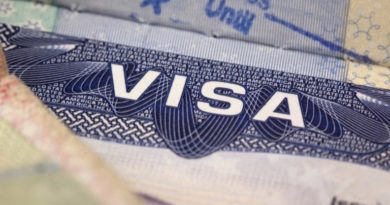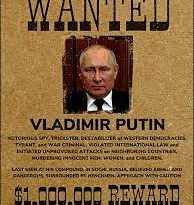US POST PRESIDENTIAL ELECTION: FINANCE: Dominion v. MyPillow Guy poses a stark test for America’s libel laws
.
.
“Instantly,” said Steven Bellovin, a professor of computer science at Columbia University with almost 40 years of experience in computer networking and security.
That’s how long it took him to realize, he said in an interview, that a certain purported spreadsheet that I showed him was “not just fake, but a badly generated fake by someone who didn’t know what they were doing.”
The spreadsheet, together with an animated film that was said to illustrate its data, formed the crux of a nearly two-hour “docu-movie,” called “Absolute Proof,” which aired at least 13 times last February on the One America News Network. The movie, presented in a news magazine format, was hosted, co-produced, and relentlessly flacked by Mike Lindell, the irrepressible CEO of MyPillow, Inc. It purported to furnish absolute proof that the 2020 presidential election was stolen from then-President Donald Trump in an international cyberattack exploiting vulnerabilities in voting-machine software that had been intentionally designed to rig elections.
Dominion Voting Systems, which makes voting technology, filed a $1.3 billion defamation suit against Lindell and his company in late February—the third of four massive cases it has filed since the election—in part because of “Absolute Proof,” which referenced Dominion more than 40 times. (An in-depth analysis of Dominion’s suits over bogus election-fraud claims, as well as one brought by a rival voting-device company, Smartmatic, is provided in an earlier story I wrote here.)
Compared to the other defendants Dominion has sued— Trump’s former personal attorney Rudolph Giuliani; so-called Kraken lawyer Sidney Powell; and conservative news goliath Fox News Network—the MyPillow Guy might seem like a quirky afterthought.
He’s not, though. With a reported net worth of $300 million, Lindell, 59, is the most deep-pocketed of the non-media defendants, a major funder of conservative media generally, and a crucial underwriter of election-fraud myths in particular. Most notably, he sponsored Women for America First’s “March for Trump” bus tour—using a red bus emblazoned with a MyPillow logo—which staged stop-the-steal rallies in 20 cities from late November through early January. The tour culminated in the Save America Rally of Jan. 6, where Trump spoke and from which thousands of attendees peeled away to launch the deadly assault on the U.S. Capitol.
Lindell’s case is also intriguing for another reason, which is the focus of this article. It poses a particularly stark test of how our libel laws—which require that the defendant be shown to actually know or strongly suspect the falsity of his or her statements—play out when the defendant is a conspiracy theorist who seems beyond the reach of rational persuasion. In essence, it poses the question of whether, in a libel suit—which is a civil case—a defense lawyer could argue something akin to the insanity defense that exists in criminal cases. This story seeks to plumb Lindell’s highly atypical psyche to imagine how a jury might view his singular case, given our libel law’s steep and subjective criteria for liability.
.

“Completely and totally fabricated”
The spreadsheet that lay at the heart of “Absolute Proof” purported to document a massive, international cyberattack on U.S. election tabulation devices last November originating mainly from China, but also from Iran, Czech Republic, and an assortment of other countries. It further purported to identify each individual computer used by the hackers in those foreign countries as well as each targeted U.S. voting tabulator in 2,995 American counties, which were each supposedly identified by something known as a “media access control” address. The spreadsheet even claimed to report the actual number of votes “stolen” during each intrusion—i.e., switched from then-President Trump’s column to that of now-President Joe Biden. If not for these thefts, the spreadsheet data indicated, Trump would have won the election.
Months before the movie was released, of course, essentially every credible authority in the country had already pronounced the elections fair and secure, including Trump-appointed Attorney General Bill Barr and Trump-appointed Cybersecurity & Infrastructure Security Agency director Chris Krebs. If those weren’t sufficient red flags to give Lindell pause, Dominion had also sent him a four-page cease-and-desist letter on Dec. 23; a five-page retraction demand with 61 pages of exhibits on Jan. 8; and a 12-page letter on Feb. 4 specifically debunking aspects of the “spreadsheet” in question. (By then, a page of the spreadsheet had already surfaced on a weird internet conspiracy site and Lindell had begun touting it on his Twitter account.)
Lindell plunged forward with the movie anyway.
“I feel unclean just having watched those 13 minutes,” Bellovin wrote me in an email, referring to the critical segment of the movie displaying the supposed “proof” of the cyber-attack.
“This is completely and totally fabricated,” he continued in an interview the next day. “The technical details make no sense whatsoever. The network addresses are impossible . . . and the tradecraft is completely wrong. So it’s all bull.”
Three other computer or election security experts interviewed reached similar conclusions, although they sometimes homed in on different features of the spreadsheet in terms of what struck them as the most preposterous. (In nearly every state some pointed out, the official vote is a durable paper ballot, incapable of being altered by computer hackers. In addition, the vast majority of states keep vote tabulators “air-gapped,” i.e., never hooked up to modems for any purpose.)
.What’s Lindell’s answer to this?
“Well, you’ve talked to the wrong people,” he told me in an interview last week. “I’ve spent the last month validating the IP addresses and the IDs of the computers, even over in China, and here in the U.S.”
Lindell appeared to acknowledge that there was some sort of flaw in the tabulator addresses shown in the movie—but suggested that that had been done intentionally for benign reasons.
“The ones you’ve seen in ‘Absolute Proof’—there was a digit that was off there,” he said. “So we didn’t want people going—destroying the machines, destroying the computers. So I’m sure that’s what they’re probably trying to say to you.”
“But it doesn’t matter to me what they say,” he continued, his words spilling over each other at a speed that even a recording device could barely keep up with. “I’ve got all the cyber evidence.” He will soon be launching a new social media platform, he asserted—to be called “Frank”—where “we’re going to be dumping evidence to the world.” (Lindell was kicked off Twitter on Jan. 26, for propagating election-fraud myths, and MyPillow’s corporate account was ejected on Feb. 2.)
As for Dominion’s suit against him, Lindell said “we’re getting it removed next week [and] taken down as frivolous.”
Lindell then added—as has previously been reported—that he would soon be filing two lawsuits of his own, one against Dominion and a second which “is going directly to the Supreme Court” where “they’re going to take down this election” by a “nine-zero vote.” Trump will be back in office “by August,” he averred.
A spokesperson for Dominion declined comment beyond the company’s original statement when it filed the suit: “Despite repeated warnings and efforts to share the facts with him, Mr. Lindell has continued to maliciously spread false claims about Dominion, each time giving empty assurances that he would come forward with overwhelming proof. These claims have caused irreparable harm to Dominion’s good reputation and threatened the safety of our employees and customers. Moreover, Mr. Lindell’s lies have undermined trust in American democracy and tarnished the hard work of local election officials.”
.

Is lunacy a defense to libel?
The seminal work on political conspiracy theorists is the late historian Richard Hofstadter’s “The Paranoid Style in American Politics,” first published as an essay in Harpers in 1964. By choosing the word “style,” Hofstadter largely side-stepped speculation—beyond his credentials—about the precise mental state of the people he was chronicling. These included the folks who, over the centuries, saw elaborate, dastardly, and highly implausible plots being hatched by such presumed villains as Bavarian Illuminati, Free Masons, Jesuits, and—in some circles in the 1950s—such putative crypto-communists as Secretary of State John Foster Dulles and even President Dwight D. Eisenhower. Do such conspiracy theorists share any psychic disposition? A personality disorder? A mental illness? For the most part, Hofstadter didn’t go there.
But there’s no side-stepping state of mind in a defamation suit. In the U.S., a “public figure” who brings a libel case—and Dominion will likely be considered a public figure—must show “actual malice” to prevail, which is a subjective standard, the Supreme Court has held. The question is not whether the defendant should have known whether his reputation-damaging statements were false, but whether he actually did know they were false, or at least harbored “serious doubts” about their truth.
Does that mean that lunacy is a defense?
“You know I got your email,” said David Schulz in an interview, “and I had to stop and scratch my head a minute, because it’s a really difficult question.” A media lawyer for 35 years, Schulz is senior counsel at Ballard Spahr and the Floyd Abrams clinical lecturer at Yale Law School. “I don’t know of any court that’s decided that.”
Such a defense would certainly be an extraordinary one, Schulz opined. “Unless they’re going to come in with some kind of expert psychiatric evidence to say [the defendant] really couldn’t understand this,” says Schulz, a jury is “highly unlikely” to be swayed by such a defense.
There are a number of doctrines and precedents, he adds, that, in a sense, almost smuggle an objective standard back into the picture, at least to the extent that they permit a jury to assess all the circumstances and conclude that the defendant must be lying. For instance, sticking to a preconceived narrative in the face of contrary facts can be evidence of “actual malice,” courts have found. So can a defendant’s “conscious avoidance” of evidence that cuts against his or her thesis, Schulz says.
“So it’s not enough to say, well, I didn’t know it was false,” he continues, “in the face of all these facts [weighing the other way]. . . . The jury can say, ‘We don’t believe you. No one would have believed this stuff.’”
On the other hand, juries are wild cards. What if the jury itself includes a conspiracy theorist or two? (In federal court, where the case against Lindell has been filed, civil jury verdicts must be unanimous unless the parties stipulate otherwise.)
.

From crack addict to CEO
In assessing Mike Lindell’s state of mind, we must briefly recap his truly incredible back story. For this purpose, we will rely on Lindell’s own (perfectly titled) autobiography, “What Are the Odds?”
In 1968, when Lindell was seven, his parents’ marriage broke up. His mother drove him and his sisters to Chaska, Minn.—where MyPillow is now based—to live in a trailer park.
As a kid, he was good in math, though he likely battled with undiagnosed ADHD, he writes. In high school he began drinking and gambling on sports. He survived multiple near-death experiences, by his telling, including smashing his stepfather’s pickup truck (he remembers overhearing an EMT pronouncing the words “no pulse”); getting “trapped under a sheet of ice in a lake”; being “electrocuted by a bolt of power so massive it shut down half the town”; and a skydiving accident in which he “smashed into the ground at 60 miles per hour because my parachute didn’t fully open.”
After graduating from high school in 1979, he went to the University of Minnesota “for about five minutes.” The 1980s were a blur of short-lived business ventures (pig farming; carpet-cleaning); some DUIs; tending bar; and miraculous escapes from ruinous gambling debts. In 1984, he became addicted to cocaine.
Nevertheless, he periodically managed to make some money through card-counting at blackjack in casinos. That art, requiring prodigious memory skills, involves keeping track of all the cards that have been dealt and then playing one’s hand in accordance with statistical probability tables that have been memorized. One must also be a good actor, concealing what one is doing from casino monitors, because the practice is forbidden.
In 1990 Lindell bought a bar. In 1999, his cocaine habit escalated into a crack cocaine addiction. In late 2003, in financial straits, he sold the bar.
Sometime in the spring of 2004, he woke up at 2 a.m. asking, “Where’s my pillow?” He decided to market a product called MyPillow. He settled on a fill (a mix of three foams and a proprietary additive), applied for a patent, set up a factory in a nearby former bus shed, and began selling MyPillows from a mall kiosk by that December.
Life remained hard-scrabble. In 2007, his marriage of 20 years broke up.
Then, in February 2008, facing hard times again, he got a series of odd phone calls. Four strangers called, each asking only to pray with him. Then he got a fifth call on a line he used “only for internet access.” A “female and robotic” voice said: “Mike, this is a message from God. Everything you’ve experienced in your life will give you the strength to get through the next month.”
He did get through the month and then, in January 2009, quit drugs. By then he’d been on cocaine for 24 years—the last nine on crack. He started going to church and to a faith-based recovery program.
In 2011, Minnesota’s Star Tribune came out with a human-interest story about this remarkable crack-addict-turned-pillow-entrepreneur. The late Don Imus of New York’s WABC radio invited Lindell on his show. That October, Lindell did his first infomercial on the Discovery Channel.
“In a few short months, we went from approximately 20 employees to more than 500,” according to the book, and the company sold $100 million in pillows over the 2011-12 span.
Still, due to poor expense discipline, the company was in the red. Lindell’s private life was also tumultuous. In 2013, he remarried, but it lasted just 20 days.
The following year, he began receiving “almost audible” messages. He didn’t hear a voice per se, he writes, but he received directions that were nevertheless “clear as a bell.” One message told him he was about to meet his next girlfriend, for instance: “She is the one. Through her, you will become closer to Me.”
One such message concerned his company. Though it was then $6 million in the hole, the message said MyPillow would finish the year $8.2 million in the black.
Sure enough, on Nov. 5, 2014—the day after the midterm election—sales began spiking. From the promo code, he saw that they were coming from an ad he’d placed on Fox News. Though he’d never been political, he realized then that “Fox’s politics actually helped us,” he writes. “Republicans had retaken Congress, branding it as a reclaiming of America. Fox News watchers . . . really resonated . . . with me talking about my invention made in small-town USA.”
The company ended the year with $8.19 million in the bank—fulfilling the premonition—and “we never looked back.”
In May 2015—a month before Trump announced his candidacy—Lindell had a dream in which he met Trump, according to a chapter in his book entitled “Awakening.” About 14 months later—around the time of the Republican convention—he was reading a magazine article about Trump when he noticed in a photo that “the wall in [Trump’s] office was the same one I’d seen in my dream.” He began praying to God to “understand what was happening,” and his phone suddenly pinged with a text message: Trump wanted to meet him at Trump Tower in New York.
“What brought tears to my eyes,” Lindell writes, “was that it seemed God had spoken directly to me in real time.”
The Trump meeting—“a divine appointment,” Lindell calls it—occurred on Aug. 15, 2016. At its close, a staffer offered to take a picture of the two men using Lindell’s phone. Just before snapping it, Trump said, “No, let’s take it over here.”
“When I checked it later,” Lindell writes, “I saw that it was the exact image I’d seen in my dream.”
.

‘Real-time documentation of the theft of the vote”
Let’s skip over the book’s last several miracles and turbo straight to November 2020. That month something distinctly non-miraculous happened in Lindell’s life: Americans voted his hero out of office by more than 7 million votes. (Lindell’s book was published in 2019, so there’s no chapter on that.)
On Jan. 3, 2021, an obscure conspiracy-theory website called The American Report, ran a puzzling article about a supposed international cyberattack upon the 2020 election. It included what can now be recognized as an isolated still shot from the animation that later appeared in “Absolute Proof.”
Then, on Jan. 11, The American Report ran an “exclusive” offering “raw data analytics” purporting to document that same attack. It displayed one page from the spreadsheet that later became the heart of Lindell’s “Absolute Proof.”
Both American Report articles carried the byline of Mary Fanning and Alan Jones. The previous August, these two had published a Kindle book about a purported CIA supercomputer called THE HAMMER, which the book’s sources said had been used by President Barack Obama to spy on Trump, Lt. Gen. Michael Flynn, Chief Justice John Roberts, Jr., 156 lower federal judges, more than 100 members of Congress, and scores of others.
Earlier American Report articles, also authored by Fanning and Jones, had reported that Obama had used THE HAMMER to steal the 2012 election. In late October 2020, an article by Fanning and Jones had floated the notion that THE HAMMER would also be used to steal the 2020 election from Trump. (On Nov. 7 and 8, then-CISA director Krebs warned the public that THE HAMMER story was “nonsense,” “disinfo,” “not a real thing,” and “a hoax.”)
According to Dominion’s later lawsuit against Lindell, The American Report website was originally registered in the name of Mary Kirchhoefer, though the registrant is now concealed by a proxy service. According to federal election records, Mary Fanning Kirchhoefer, 69, is a Trump donor who has lived in affluent suburbs north of Chicago. She also once started a business called Absoluteproof, according to Dominion’s suit.
A woman who answered a phone listing for Mary Fanning Kirchhoefer acknowledged to me that she was “Mary,” but then hung up when I identified myself as a reporter inquiring about “Absolute Proof.” She did not respond to five other messages.
On Jan. 15, Lindell quote-retweeted two screengrabs from Fanning’s Jan. 11 American Report article, including one displaying the page of the spreadsheet. Lindell’s second tweet says, “Here is one page of hundreds that prove President Trump got around 79m votes to 68m votes for Biden!”
In my interview with Lindell last week, he denied knowing what The American Report was. “I don’t watch The American Report,” he said. “I don’t know what it is.” He held to that statement even when I explained that it was Mary Fanning’s website and that it was currently advertising MyPillows. (In fact, its then-featured story was just a big MyPillow promotion.) Lindell said that didn’t mean anything because 5,000 radio stations, podcasts, and websites advertise his pillows.
Lindell told me he first learned of the spreadsheet on Jan. 9 “on the internet” somewhere, “dug into it,” and eventually spoke to “three guys” who were “former government employees and government employees” and “they had the spyware and they had all these cyber footprints” and “they took it off the machines.” He said Mary Fanning “didn’t show me nothing.”
Lindell’s movie, “Absolute Proof,” lists himself, Mary Fanning, and Brannon Howse, the president of a Christian conservative radio network, as its three co-producers. It also lists Fanning, Jones, and Howse as its three “researchers.”
In the movie, a woman identified as Mary Fanning—described there as a “national intelligence researcher and author”—narrates the 13-minute climax of “Absolute Proof.” It is she who explains what the spreadsheet and animation allegedly show. Unlike all the other people Lindell interviews in his docu-movie, Fanning is interviewed only by phone and her face is never shown, even by photograph.
“There are prismatic scoring algorithms,” Fanning says in the movie, “and they steal the vote at the transfer points—at the point where the vote is leaving the secretary of state’s office.” (Elsewhere, in The American Report, Fanning’s articles have posited that THE HAMMER steals votes at “transfer points” between the secretary of state’s office “and third-party election data vaults.”)
While Fanning is speaking in the movie, the animation is showing a global map over which moving, multicolored lines rise up from various cities in China, cross the ocean in high arching trajectories, and then descend back to earth, bombarding various locations in swing states like Georgia and Michigan.
“What you’re watching, those packets moving,” Fanning says in her voiceover, “that’s real-time documentation of the theft of the vote.”
“This is ridiculous, idiotic nonsense,” says Gregory Miller in an email. He is the co-founder of the OSET Institute (OSET stands for Open Source Elections Technology), a non-partisan, non-profit R&D organization devoted to election security.
“There are no 3d party ‘vaults,’” Miller continues. “There is no such recognized thing as a ‘transfer point.’ . … The paper ballots of record reconcile any discrepancy, real or alleged. This silliness presumes there is no paper ballot.”
Asked what “prismatic scoring algorithms” are, Bellovin, the endowed professor of computer science at Columbia, said, “I have no idea what that means.” (Miller didn’t either.)
Beyond the fact that most of the purported addresses for vote-tabulators listed on the spreadsheet made no technological sense, Bellovin pointed out another “glaring” problem with both the spreadsheet and the animation.
“Attackers don’t use their own computers,” he said. They go through “stepping stone” computers, so that the attack finally comes from a computer in the United States—thereby avoiding, among other things, National Security Agency monitoring. “This has been a pattern of behavior of hackers going back at least 35 years,” he said. “This would be unbelievably poor tradecraft even for ordinary hackers,” he continued, let alone “a sophisticated attack by nation states.”
In our interview, Lindell seemed utterly unfazed that my experts thought his documents were crude fakes—and supremely uncurious about the accusation, too. He never asked me why any of them thought so. He was too busy hawking his next movie, to be called ‘Absolute Interference.’ “That’s going to show you a lot more, as it actually validates ‘Absolute Proof,’” he said.
(In historian Hofstadter’s famous essay of 56 years ago, he made this disarmingly apt observation: “One of the impressive things about paranoid literature is the contrast between its fantasied conclusions and the almost touching concern with factuality it invariably shows. It produces heroic strivings for evidence to prove that the unbelievable is the only thing that can be believed.”)
By the end of our interview, Lindell seemed angry. When I asked him how MyPillow’s business was, he acknowledged that 22 retailers had dropped him since he launched his stop-the-steal crusade, though he blamed that fact on someone’s having hired “bots and trolls” to “attack” those retailers.
Did that mean MyPillow’s sales were down?
“You know, that’s none of your business,” he said. “This interview’s done. You’re just gonna write some left-wing crap.” He hung up on me seconds later.
Maybe a minute after that, he texted: “Not sure what kind of journalist you are! A liar for sure! You lied to me at least 4 times and I will be reporting you to the country for the liar you are! I will pray for you… you obviously have issues! Keep watching lindelltv.com.”
.
Roger Parloff Contributor
.
Roger Parloff is a regular contributor to Yahoo Finance and has also been published in Yahoo News, The New York Times, ProPublica, New York Magazine, and NewYorker.com, among others. He was formerly an editor-at-large at Fortune Magazine.
.

More from Roger:
Dominion Voting official, in hiding, speaks out: ‘This never ends for me’
Nikola’s Trevor Milton left a trail of bitterness on his way to founding the electric car startup













